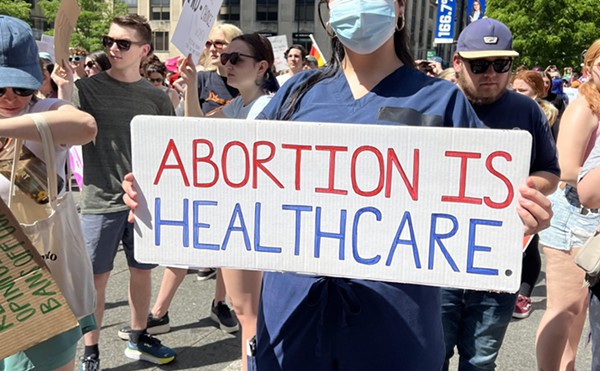|
A pile of 100 letters chronicle the violence experienced by a teenage girl who ultimately married her abuser. When her family found them among her personal effects after her slaying by the same man, they became a tool to end the cycle of violence in other lives.
"We do hope that they help others," says Sharon Nolan of the "love letters" written to her daughter, Shannon. "We've been in front of groups of teenagers, and when I say some of the words of the letters — use them as a background for, 'Do you know these signs of teenage dating abuse?' — you´ll have teenagers in the room say they've heard those exact same words.¨
Those words are chilling.
"He demeaned Shannon about everything, her grades in school, about him being smarter ... her looks," Nolan says. "All the abuse that he speaks about, it's never his fault, it's Shannon's. He does it because she doesn´t tell him not to do it. He does it because she deserves it and in another sentence he'll say, 'You don´t deserve this.' He said, 'You don´t deserve to be hit, at least not with a fist.'
There´s another phrase where he says, 'I didn't mean to choke you today, I was just trying to get your attention.'
"If he was uncomfortable with friendships that she had, we now know that those friendships ended because she needed to please him. John Broe was threatening to these friends. It was more Shannon's love for these friends that she felt she needed to end it rather than keep them in his eye as a problem in her life that maybe he might do something about."
Nolan repeatedly says boys and men are also frequently the victims of violence in relationships.
Recognizing this kind of violence as more than a "family matter," the YWCA in conjunction with a host of local service organizations is hosting a public forum, "The Intersection of Community Violence & Family Violence: Breaking the Cycle." The normalization and acceptance of violence as a part of everyday life makes the killing of people like Shannon Nolan inevitable.
In an effort to present an alternative to violence, peace is the focus of the event, according to Kristin Smith Shrimplin, director of the YWCA´s Family Violence Prevention Project.
"It's about taking the assets in the family violence movement and the ... community violence movement and ... creating a radical cultural shift in our community: shifting community norms away from tolerance and acceptance of any form of violence to establishing norms that promote healthy and peaceful relationships," Shrimplin says. "The planning of this event is guided by a philosophy of Eleanor Roosevelt: 'It isn´t enough to talk about peace. One must believe in it. And it isn't enough to believe in it. One must work at it.'
"Therefore, the community forum isn't about a one-time event based on dialogue. The forum is about symbolically launching the beginning of a new peace movement through public health strategies that are rooted in a comprehensive definition of violence, family and community."
As one of the panelists, Sharon Nolan hopes to continue the work she and her husband have been doing ever since violence exploded in their lives, sharing the lessons learned from their experience.
"On the outside, she was a good student, a really good person," Sharon Nolan says. "We were the sports parents, the music parents ... PTA parents, everything. That's the outside and what we felt like everything was. But it turned out that ... she was actually being abused within the first year of dating. We missed everything, and she hid it very well. The letters let us know that she was abused before, during and after school by his own account, yet no one witnessed any of these things."
Nolan hopes to build awareness about the signs of abuse so that anyone in the community who might encounter the evidence of violence — a bus driver who notices harsh physical behavior, a doctor who is inclined to prescribe anti-depressants before asking questions about the source of a person's upset — can do something to help. She also wants boys and girls to see violence for what it is — destructive, not loving.
She says, "Wear your hair the way I tell you to. Wear the clothing I tell you to. Don't talk to this person because I tell you to" is about manipulation and control.
"The average teenager would think, 'That's kinda neat. My boyfriend loves me to much he doesn't want me to be with somebody else,' " Nolan says. "Where now maybe teenagers will look into that and maybe realize that is an obsession. That is someone taking charge of their life."
Participants in the forum will do more than learn. They'll have an opportunity to create change by continuing to participate in and lead workshops throughout 2008.
"The key objective of the workshops/summits is to create and implement direct, public-health model strategies that drive change at the individual, community, school, organizational and systems-based levels," Shrimplin says.
The community-family violence connection is obvious to Nolan, and she hopes people will begin making the change happen in their own homes with a simple but difficult step.
"No matter how close you think you are with your kids, keep that relationship open to make sure that they're aware that they can come to you with anything — you're willing to listen and not be judgmental," she says.
For more information about the forum, contact Antigone Betas at 513-361-2141 or [email protected].





